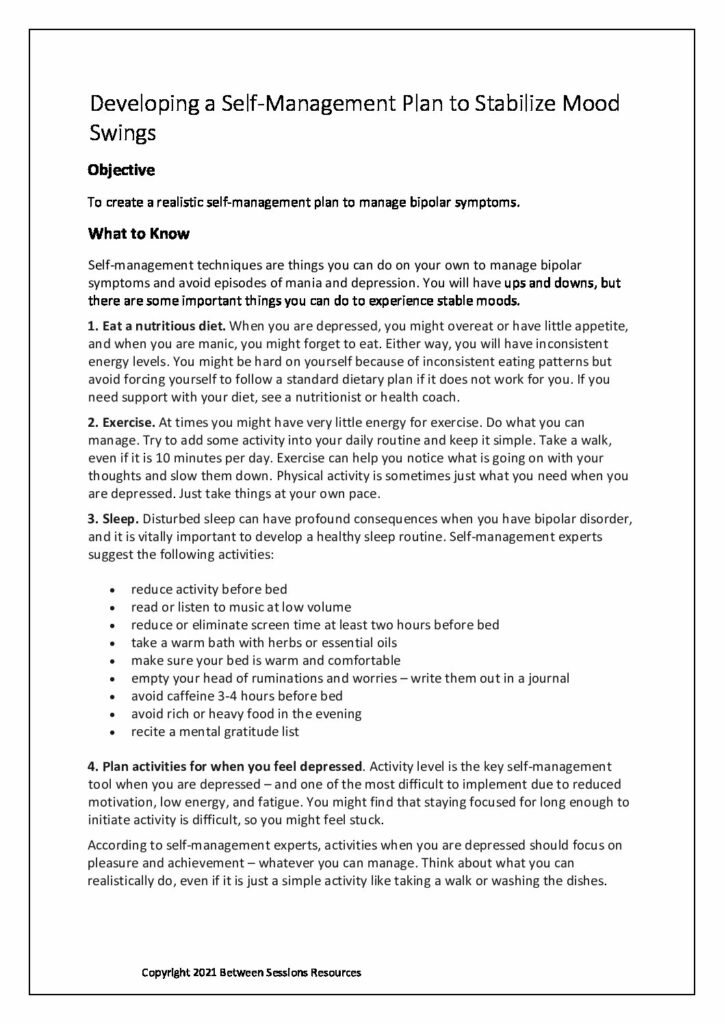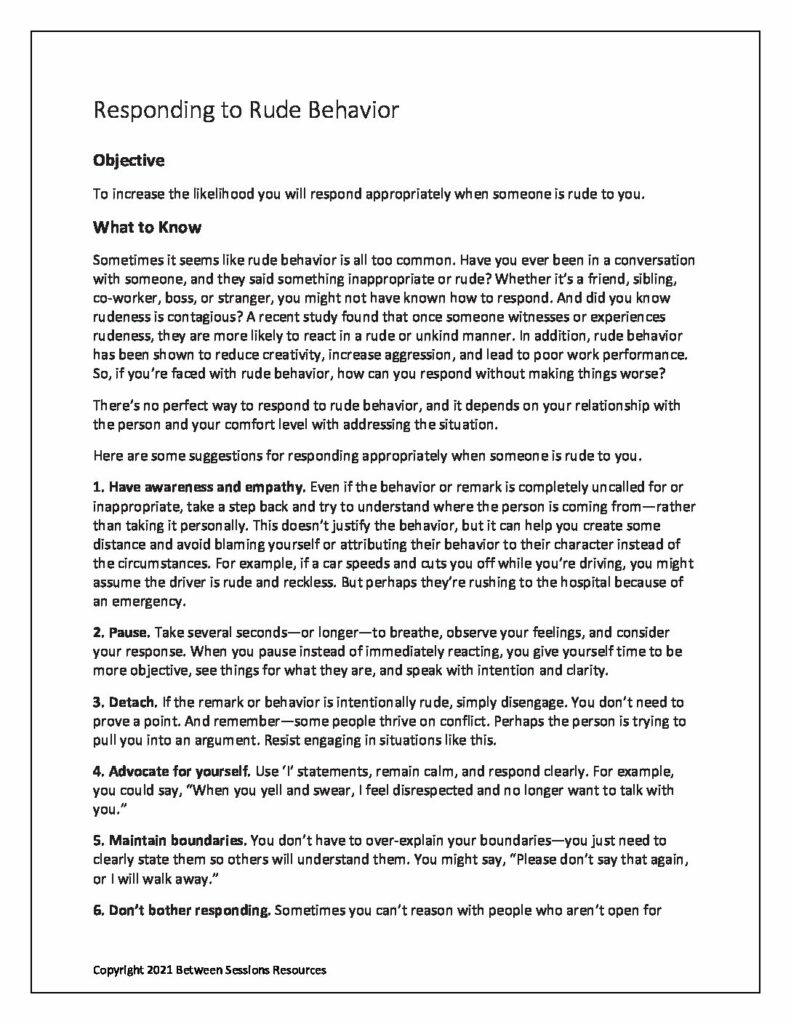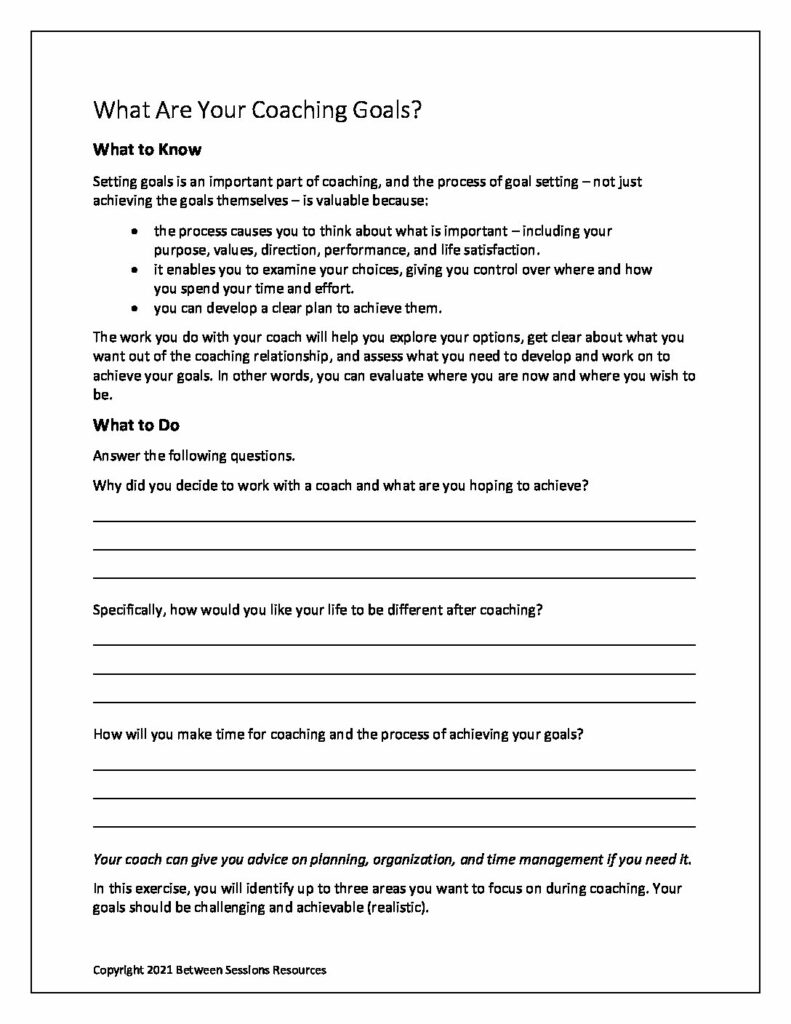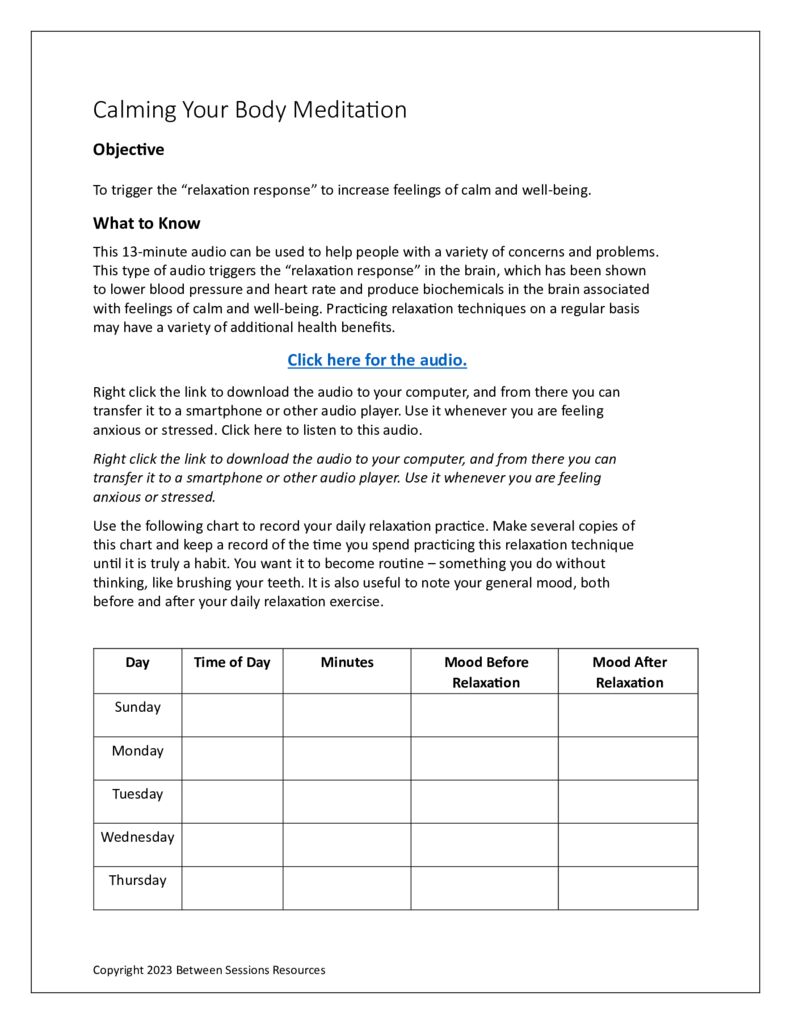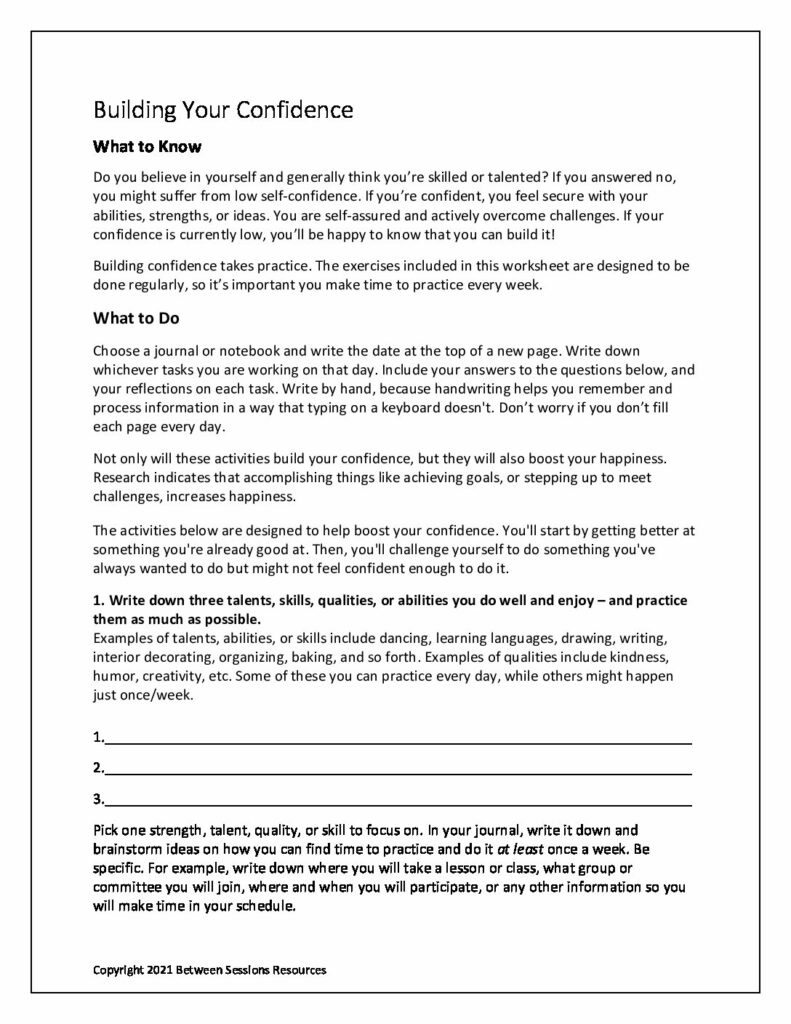Studies tell us that when professionals prescribe therapeutic homework, clients report significantly better outcomes. Our worksheets are derived from evidence-based therapies, and they are designed by experienced professionals. Use the navigation links on the left of this page to view tools in a specific category. Or use the search box at the top of this page to find the exact tool you are looking for.
To modify the tools, click the ‘Send to Client’ button by each tool to open the Psychology Forms Filler. You can then edit the tool as you see fit and either print it out or send it to a client to be filled out online. Click here for a tutorial on using the Psychology Forms Filler.
If you can’t find what you are looking for on this site, please let us know by
clicking here and our team of writers, graphic artists, and therapists will custom-design it for you.
This worksheet presents 13 self-management techniques to manage bipolar mood swings. (1021, bipolar disorder, mood swings, self-management)
This worksheet is designed to help people with bipolar disorder keep manic episodes from escalating by preventing sleep disruption and limiting activities. It provides a chart to help people create a schedule of appropriate patterns. (1021, bipolar disorder, manic episodes, mania)
This worksheet is intended to help people who experience manic episodes understand their symptoms and manage their thoughts and moods. (1022. manic episodes, bipolar disorder)
This worksheet is intended to help people understand how bipolar disorder has affected them in areas like relationships, work, sleep, physical activity, and so on. A chart asks people to think about each area and consider the healthy and unhealthy ways they cope with bipolar disorder. (1021. bipolar disorder, coping)
This worksheet describes the three types of bipolar disorder. While the worksheet Is not intended to give a diagnosis, it does help people identify if they have the symptoms of bipolar disorder. (1021, bipolar disorder)
This worksheet gives people eight techniques to deal appropriately and effectively with rude behavior.
(1021, workplace, relationships)
This worksheet is designed to help people understand the process of setting coaching goals and what they hope to achieve in their coaching journey. (1021. Coaching, goal setting)
This 13-minute audio can be used to help people with a variety of concerns and problems. This
type of audio triggers the “relaxation response” in the brain, which has been shown to lower
blood pressure and heart rate and produce biochemicals in the brain associated with feelings of
calm and well-being. Practicing relaxation techniques on a regular basis may have a variety of
additional health benefits. The worksheet includes a chart for clients to keep track of how often they practice relaxation exercises and the effect on their mood. (0723, relaxation, stress, audio)
This worksheet helps people learn and practice progressive muscle relaxation, a technique that involves tensing specific muscle groups and then relaxing them. (100721, relaxation, progressive relaxation)
This worksheet gives people ideas on how to improve their confidence by recognizing their skills and talents, understanding how a lack of confidence is holding them back, and creating a self-talk script. (1021)

